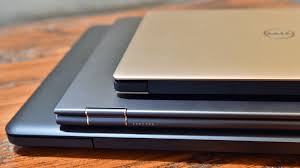
The Benefits of Buying a Used Laptop
Buying a used laptop can be a smart choice for many reasons. Here are some benefits to consider:
- Cost-Effective: Used laptops are typically much more affordable than brand new ones, allowing you to get a high-quality device at a fraction of the cost.
- Value for Money: You can often find used laptops that still have plenty of life left in them, offering great value for your money.
- Environmentally Friendly: By purchasing a used laptop, you are helping to reduce electronic waste and minimize the environmental impact of technology consumption.
- Wide Selection: The used laptop market offers a wide variety of models and brands to choose from, giving you more options to find the perfect device for your needs.
- Tested Performance: Many reputable sellers thoroughly test and refurbish used laptops before selling them, ensuring that you get a reliable and functional device.
Before purchasing a used laptop, be sure to research the seller’s reputation and carefully inspect the device for any signs of wear or damage. With proper due diligence, buying a used laptop can be a cost-effective and environmentally conscious choice that meets your computing needs.
Essential Tips for Buying a Used Laptop: A 7-Step Guide
- Check the physical condition of the laptop, including any scratches or dents.
- Inspect the screen for dead pixels or any other display issues.
- Test all the ports and connections to ensure they are working properly.
- Check the battery health and how long it holds a charge.
- Verify the specifications match what was advertised, such as RAM and storage capacity.
- Run diagnostic tests to check for any hardware or software issues.
- Negotiate the price based on the age and condition of the laptop.
Check the physical condition of the laptop, including any scratches or dents.
When considering purchasing a used laptop, it is crucial to thoroughly examine the physical condition of the device, paying close attention to any visible scratches or dents. These cosmetic imperfections can indicate how well the laptop has been cared for and may also impact its overall durability and performance. By checking for signs of wear and tear on the exterior of the laptop, you can make a more informed decision about its quality and potential longevity, ensuring that you invest in a used laptop that meets your expectations.
Inspect the screen for dead pixels or any other display issues.
When considering purchasing a used laptop, it is crucial to inspect the screen for dead pixels or any other display issues. Dead pixels are small points on the screen that do not display any color and can be distracting or affect the overall viewing experience. By carefully examining the screen for dead pixels or other display abnormalities, you can ensure that the laptop’s display is in good condition and will provide a satisfactory visual experience for your computing needs.
Test all the ports and connections to ensure they are working properly.
When considering purchasing a used laptop, it is essential to test all the ports and connections to ensure they are working properly. Checking the functionality of ports such as USB, HDMI, audio jacks, and others is crucial to ensure that you can connect external devices and peripherals without any issues. By thoroughly testing the ports and connections, you can avoid potential compatibility issues and ensure a seamless user experience with your used laptop.
Check the battery health and how long it holds a charge.
When considering purchasing a used laptop, it is crucial to check the battery health and how long it holds a charge. The battery life of a laptop is essential for its portability and usability, so ensuring that the battery is in good condition is key. By examining the battery health and assessing how long it can hold a charge, you can determine if the laptop meets your needs and avoid any unexpected issues down the line. This simple tip can help you make an informed decision when buying a used laptop.
Verify the specifications match what was advertised, such as RAM and storage capacity.
When purchasing a used laptop, it is crucial to verify that the specifications match what was advertised, especially concerning factors like RAM and storage capacity. Ensuring that the laptop has the specified amount of RAM and storage capacity is essential for meeting your computing needs and getting the performance you expect. By double-checking these specifications before making a purchase, you can avoid any potential discrepancies and ensure that you are getting a used laptop that meets your requirements.
Run diagnostic tests to check for any hardware or software issues.
To ensure the quality and performance of a used laptop, it is advisable to run diagnostic tests to check for any hardware or software issues. By conducting these tests, you can identify any potential problems that may affect the functionality of the device. This proactive approach allows you to address any issues before making a purchase, ensuring that you get a reliable and well-functioning used laptop.
Negotiate the price based on the age and condition of the laptop.
When considering purchasing a used laptop, it is advisable to negotiate the price based on the age and condition of the device. Older laptops or those in poorer condition may have decreased performance or shorter lifespans, affecting their overall value. By taking into account these factors during price negotiations, you can ensure that you are paying a fair amount for the laptop that aligns with its age and condition. This approach allows for a more transparent transaction and helps both parties reach a mutually beneficial agreement.
